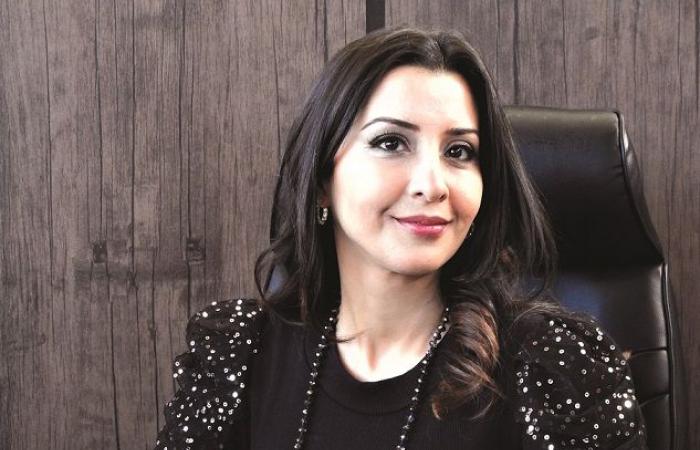Finances News Hebdo: How would you characterize the scope of action of patient support associations, within the framework of the new reform of social protection and compulsory medical coverage?
Intissar Haddiya: The new social protection reform in Morocco marks a decisive turning point in access to care and social security for millions of citizens. It aims to extend compulsory medical coverage (AMO) to the entire population, including self-employed workers, liberal professions and citizens in vulnerable situations. This ambitious program is part of a dynamic of social justice and reduction of inequalities, by guaranteeing everyone access to quality care. In addition to medical coverage, the reform also includes the generalization of family allowances in order to strengthen the economic security of Moroccan households. It should be noted that in the era of this new reform, the scope of action of patient support associations has considerably broadened and nuanced. While they previously played a role essential in access to care for the most deprived, they now focus more on raising awareness and educating patients regarding their rights and the new opportunities offered by compulsory medical coverage (AMO). They also work for psychological support and socio-professional reintegration of patients, particularly those suffering from chronic or disabling illnesses. By collaborating with different organizations and institutions and strengthening solidarity networks, these associations actively participate in improving the quality of life of patients, while contributing to the success of the reform.
FNH: What is your view on associative commitment in the field of health in Morocco?
Pr. IH: Associative commitment in the field of health in Morocco has undergone significant development. Patient support associations are no longer simple charitable structures; they have become essential players in the health system. They play a pivotal role in raising awareness and educating patients as well as filling a number of gaps in access to care for disadvantaged populations. Indeed, the development of associationsSupport for patients in Morocco demonstrates collective awareness of the importance of solidarity in the health sector, especially in the face of the challenges imposed by chronic and costly illnesses. Their action makes it possible to compensate for certain inadequacies of the public system, particularly in rural or less served areas.
FNH: Over the years, associative work has become institutionalized with a vision, a strategy, an evaluation and an audit. Explain this rather complex itinerary to us?
Pr. IH : The institutionalization of associative work results from a growing need for professionalization in the management of health associations. This complex process involves the adoption of clear and transparent governance, with well-defined objectives, a precise action strategy and rigorous monitoring of activities. Evaluation and audit play a central role in the effectiveness of associations, because they allow actions to be adjusted according to the results obtained and the evolving needs of patients. Funding, whether from the public or private sector, now requires detailed reporting on the impact of projects, which pushes associations to adopt higher management standards. Furthermore, the institutionalization of associative work enhances it by offering it recognition and a formal framework which reinforces its effectiveness. Thanks to this approach, associations benefit from stronger partnerships with the State, local authorities and the private sector, which allows them to better meet the needs of the populations they support, particularly patients. These collaborations strengthen the credibility of associations, facilitate their access to funding and offer them additional resources for their actions. Consequently, patients benefit from more structured support, better awareness of their rights, as well as more effective help for access to care, social coverage and socio-professional reintegration. This institutionalization also allows for better coordination between the different health actors, thus optimizing the impact of associative initiatives on the well-being of patients.
FNH: Health associations constitute a bridge between users and the medical institution. Their role is fundamental in the management of chronic and costly diseases. What about it?
Pr. IH : Indeed, health associations represent a real bridge between users and medical institutions. They not only facilitate access to care, but also the continuity of this care, particularly for patients suffering from chronic illnesses such as kidney failure. These diseases require constant monitoring and expensive treatments, sometimes beyond the reach of patients. Associations intervene by mobilizing financial, material and human resources to guarantee that these patients receive the necessary care, while raising awareness among families and society of these issues. Their role is therefore essential in reducing the burden on medical institutions and improving the quality of life of patients.
FNH: What observations do you make today on the role of health associations?
Pr. IH : Today, it is undeniable that health associations play an increasingly structuring role in the health ecosystem in Morocco. They contribute not only to improving patient care, but also to the dissemination of crucial information on the prevention and treatment of diseases. That said, they face significant challenges, particularly in terms of financing, official recognition and coordination with public institutions. It is imperative to strengthen the partnership between the State and these associations to ensure the sustainability of their actions and the expansion of their impact.
FNH: You are president of a support association for patients with kidney failure in the Oriental region. Tell us about your experience and the role that this type of association plays in bringing healthcare closer to citizens?
Pr. IH : As president of this association, I had the opportunity to closely observe the contribution and impact of associative work in supporting patients with kidney failure, a particularly difficult disease in terms of treatment. and cost. Our mission has changed significantly over the years. The initial aim was to make care accessible to the most deprived patients. Currently, we are focusing on awareness, information and screening. Indeed, we carry out regular screening campaigns for kidney disease and its main risk factors, diabetes and high blood pressure, in addition to awareness meetings focused on the prevention of these pathologies, and the promotion of donation. and kidney transplantation which remains the ideal treatment for end-stage renal failure. In certain cases requiring assessments or expensive medications, our association also intervenes. These actions have made it possible to create a true supportive community around these patients, which we aspire to perpetuate.






